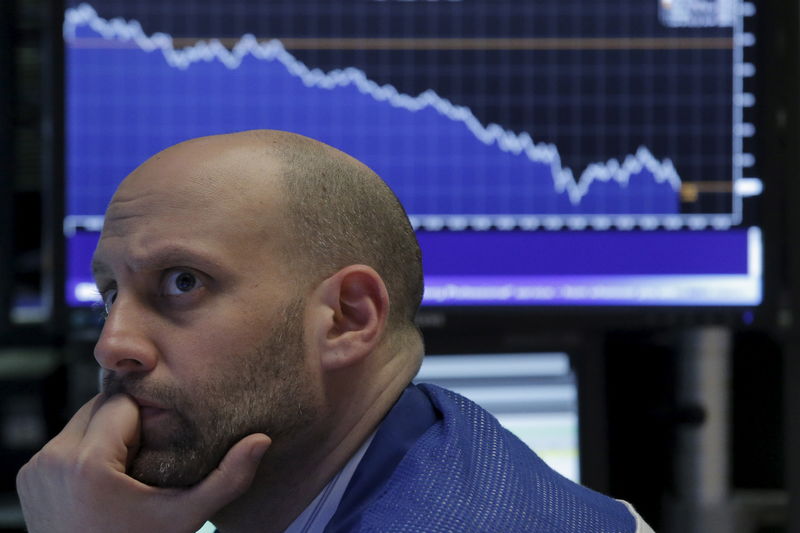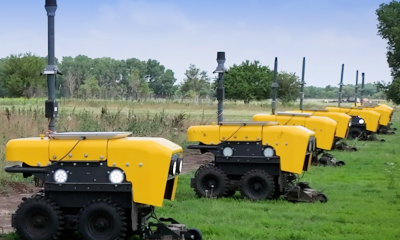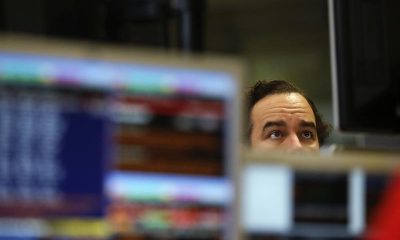Investing
US SEC approves new fee rules on market data surveillance system

© Reuters. FILE PHOTO: The seal of the U.S. Securities and Exchange Commission (SEC) is seen at their headquarters in Washington, D.C., U.S., May 12, 2021. REUTERS/Andrew Kelly/File Photo
By Douglas Gillison
(Reuters) -Wall Street’s top regulator on Wednesday approved new rules on the funding of a comprehensive market data surveillance system to split its operating costs among buyers, sellers and the stock exchanges where they trade.
The decision by the U.S. Securities and Exchange Commission faces stiff objections from the investment industry, which says it may be left paying an unfairly large share of the resulting fees.
The decision was the latest fraught turn in a decade-long effort to complete the so-called Consolidated Audit Trail (CAT), a repository of investor and transaction data meant to give regulators overarching visibility into U.S. market operations.
At an open meeting, the five-member Commission voted 3-2 to adopt changes proposed in recent months by an organization controlling that CAT, which comprises US stock exchanges and a non-government regulator.
The new funding model creates fees based on the volume of executed trades in shares and options. This shifts away from a structure based on message traffic and market share, while allowing stock exchanges several years to recoup hundreds of millions already spent.
The new rules aim to split the cost burden into equal thirds between exchanges, buyers and sellers, according to SEC officials.
They also would make buyers and sellers liable for “historical” fees representing investments made so far in developing the system. While the CAT system is partially operational, buyers and sellers have yet to begin paying in, officials said prior to the vote.
Republican commissioners objected, saying the system could leave investors facing rising costs and created excessive cybersecurity and privacy risks.
The investment industry has likewise strongly opposed the changes, claiming they unfairly distribute costs that are due to rise and could be passed on to investors. The Securities Industry and Financial Markets Association told the SEC on Tuesday that costs through the end of 2022 amounted to $500 million, were estimated at $240 million for this year and were due to rise each year.
The SEC mandated the CAT’s creation in 2012 as a response to the “flash crash” of 2010, when major Wall Street indices temporarily erased nearly $1 trillion in market value in a matter of minutes.
When the system was formally adopted in 2016, then-SEC Commissioner Kara Stein referred to the CAT as a potential “Hubble Telescope” for securities markets. Officials say it can also allow regulators to spot market manipulation. A year ago, the SEC cited CAT data in the prosecution of an alleged $47 million front-running scheme.
Read the full article here

-

 Side Hustles4 days ago
Side Hustles4 days agoWhy the Best CEOs Think Like Anthropologists
-

 Make Money5 days ago
Make Money5 days agoEarn More in 2025: Top 10 High-Yield Savings Accounts Revealed
-

 Side Hustles7 days ago
Side Hustles7 days agoLA Rental Prices Skyrocketing Despite Price Gouging Laws
-

 Side Hustles7 days ago
Side Hustles7 days agoHow to Craft Marketing Campaigns That Reach Multiple Generations
-

 Side Hustles5 days ago
Side Hustles5 days ago10 Roles That Are Surprisingly Well-Suited for Outsourcing
-

 Side Hustles5 days ago
Side Hustles5 days agoWhat to Do If TikTok is Banned — How to Protect Your Brand
-

 Side Hustles6 days ago
Side Hustles6 days agoMeta Is Laying Off 5% of Its Workforce: Read the Memo
-

 Passive Income5 days ago
Passive Income5 days agoHow Pets Can Promote Better Health and Well-Being in the Workplace


















